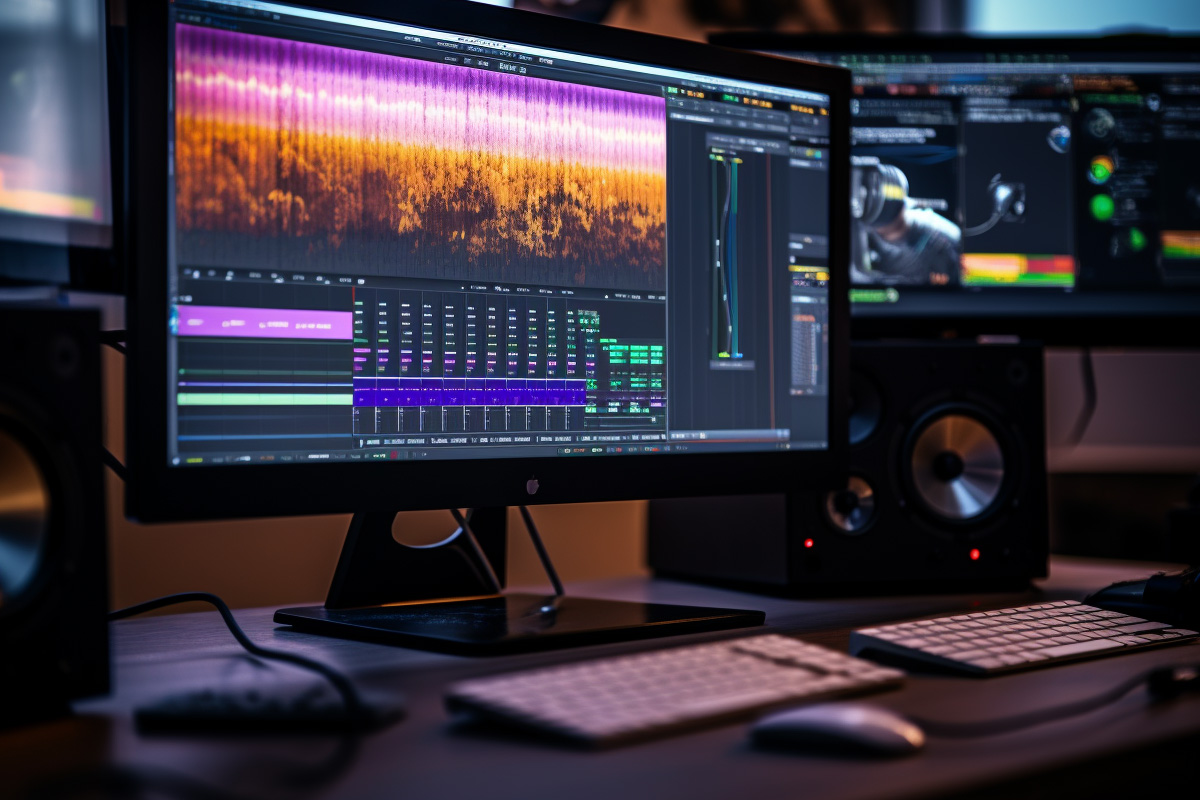What Is AI Active Learning?
AI Active Learning is a machine learning approach that strategically selects the data from which it learns. The goal is to improve learning efficiency and performance by prioritizing the acquisition

In the world of professional audio editing, choosing the right software can make or break a project. Two of the industry’s leading giants, adobe audition vs pro tools, have been at the forefront of this technological race for years. Whether you’re a seasoned sound engineer or a budding musician, understanding the differences and similarities between these two platforms is crucial. In this comprehensive guide, we will delve into the intricacies of Adobe Audition and Pro Tools, comparing their features, usability, and overall performance to help you make an informed decision.
Adobe Audition, initially released as Cool Edit Pro, has been a staple in the audio editing industry for over two decades. Acquired by Adobe in 2003, it has evolved into a powerful digital audio workstation (DAW) that caters to professionals and hobbyists alike. With regular updates and enhancements, Adobe Audition has maintained its reputation as a versatile and user-friendly tool.

Master the skills to record, edit, and blend audio like industry professionals. Recognized as one of the premier audio mixing software suites available, Adobe Audition is the preferred choice for musicians, podcasters, and video producers. Its seamless integration with other Adobe applications such as Premiere Pro and After Effects adds to its appeal and functionality.
Adobe Audition is suitable for podcasters, radio producers, and video editors who require advanced audio editing capabilities. Its integration with other Adobe products makes it a preferred choice for those already invested in the Adobe ecosystem.
Pro Tools, developed by Avid Technology, is often regarded as the industry standard for professional audio production. Since its inception in 1989, Pro Tools has been synonymous with high-end audio editing, mixing, and mastering. Its presence in major recording studios worldwide attests to its reliability and performance.
Pro Tools is the go-to choice for professional music producers, sound engineers, and film post-production experts. Its advanced features and industry reputation make it suitable for high-end commercial projects.
The battle between adobe audition vs pro tools is not a simple one, as both offer unique features catering to different needs. Let’s break down the comparison into key areas:

Master the skills to record, edit, and blend audio like industry professionals. Recognized as one of the premier audio mixing software suites available, Adobe Audition is the preferred choice for musicians, podcasters, and video producers. Its seamless integration with other Adobe applications such as Premiere Pro and After Effects adds to its appeal and functionality.
The comparison between “adobe audition vs pro tools” reveals that both platforms have distinct strengths and weaknesses. Here’s a summary to guide your decision:
The battle between “adobe audition vs pro tools” is a nuanced one, with each software catering to specific needs and preferences. Adobe Audition shines in multimedia projects and audio restoration, while Pro Tools excels in professional music production and collaboration. By understanding your unique requirements and budget, you can make an informed decision that enhances your audio editing experience.
Whether you’re a seasoned sound engineer or just starting your audio journey, the choice between Adobe Audition and Pro Tools is a significant one. We hope this comprehensive guide has shed light on the key differences and similarities, empowering you to choose the tool that best fits your creative endeavors.

Master the skills to record, edit, and blend audio like industry professionals. Recognized as one of the premier audio mixing software suites available, Adobe Audition is the preferred choice for musicians, podcasters, and video producers. Its seamless integration with other Adobe applications such as Premiere Pro and After Effects adds to its appeal and functionality.
The main differences between “adobe audition vs pro tools” lie in their target users, features, and pricing. Adobe Audition is known for its user-friendly interface and is suitable for podcasters and multimedia creators. Pro Tools is the industry standard for professional music production and offers advanced capabilities.
Both adobe audition vs pro tools offer trial versions, but for full access to all features, you’ll need to purchase a subscription or license. Adobe Audition is available through Adobe’s subscription model, while Pro Tools offers various pricing tiers, including a one-time purchase option.
Between adobe audition vs pro tools, Adobe Audition is generally considered more beginner-friendly due to its intuitive interface and helpful tutorials. Pro Tools, while powerful, may have a steeper learning curve for newcomers.
Adobe Audition excels in audio restoration and noise reduction, offering specialized tools for cleaning up audio. Pro Tools also provides quality audio editing but is more focused on music production. The choice between “adobe audition vs pro tools” in this aspect depends on your specific needs.
Yes, both adobe audition vs pro tools offer integration and compatibility options. Adobe Audition integrates smoothly with other Adobe applications, while Pro Tools offers extensive compatibility with professional hardware and third-party plugins.
Lorem ipsum dolor sit amet, consectetur adipiscing elit. Ut elit tellus, luctus nec ullamcorper mattis, pulvinar dapibus leo.
$49.99 Original price was: $49.99.$16.99Current price is: $16.99. / month with a 10-day free trial
AI Active Learning is a machine learning approach that strategically selects the data from which it learns. The goal is to improve learning efficiency and performance by prioritizing the acquisition
Adaptive streaming, also known as Adaptive Bitrate Streaming (ABS), is a technique used in streaming multimedia over computer networks. While in the past, video streaming encountered significant challenges due to
The Adobe Certified Instructor (ACI) program is a prestigious credential aimed at professionals who specialize in teaching and training others on Adobe software products. This certification is designed for educators,
Affinity Analysis is a data analysis technique used to uncover the patterns of relationships between variables in large datasets. It is often employed to identify associations among different items or
Agile Project Management (APM) is a flexible, iterative approach to planning and guiding project processes. Unlike traditional project management methodologies, Agile emphasizes adaptability, collaboration, and customer feedback in short, repeatable
Agile Software Testing is a dynamic and flexible approach to software testing that aligns with the principles of agile software development. Unlike traditional software testing methodologies, agile testing involves continuous
AI Ethics is a critical and emerging field that addresses the complex moral, ethical, and societal questions surrounding the development, deployment, and use of artificial intelligence (AI). This discipline seeks
Algorithm visualization involves the graphical representation of algorithms and their execution. This practice is a pivotal educational tool in computer science, enabling students, educators, and professionals to understand how algorithms
Alias Analysis is a technique used in the field of computer programming and compiler design to determine whether two pointers, references, or locations refer to the same memory location. This
A subnet mask is a 32-bit number that divides an IP address into network and host parts, identifying the network’s address and the devices (hosts) within that network. Subnet masks
WebAssembly, often abbreviated as WASM, is a cutting-edge technology designed to enable high-performance applications on the web. It is an open standard that defines a binary format and a corresponding
Organic Computing is an emerging field in computer science and engineering, focused on developing systems that exhibit self-organizing, self-healing, self-configuring, and adaptive behaviors. Inspired by the principles of natural and
ENDING THIS WEEKEND: Train for LIFE at our lowest price. Buy once and never have to pay for IT Training Again.

Get 15 courses covering training on Photoshop, Illustrator, Premier, After Effects and more in this comprehensive training series. Over 80 hours of on-demand video content showing you all the tricks and uses of the Adobe Creative Suite.

Get ready for the updated 220-1201 & 220-1202 exams with our brand-new CompTIA A+ training—designed to help you pass with confidence and start your IT career strong. Access this course and over 2,900 hours of expert-led IT training when you sign up for any of our All-Access Passes. Don’t miss out—enroll now and start learning today!